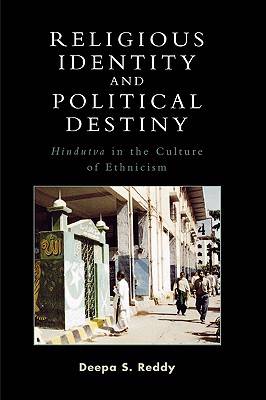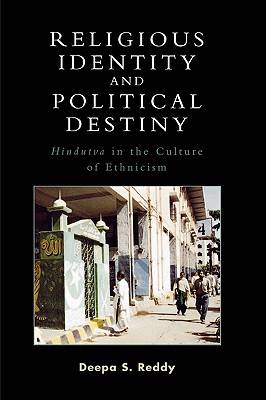
Je cadeautjes zeker op tijd in huis hebben voor de feestdagen? Kom langs in onze winkels en vind het perfecte geschenk!
- Afhalen na 1 uur in een winkel met voorraad
- Gratis thuislevering in België vanaf € 30
- Ruim aanbod met 7 miljoen producten
Je cadeautjes zeker op tijd in huis hebben voor de feestdagen? Kom langs in onze winkels en vind het perfecte geschenk!
- Afhalen na 1 uur in een winkel met voorraad
- Gratis thuislevering in België vanaf € 30
- Ruim aanbod met 7 miljoen producten
Zoeken
€ 79,45
+ 158 punten
Uitvoering
Omschrijving
Religious Identity and Political Destiny: "Hindutva" in the Culture of Ethnicism is an ethnography of a contentious on-going debate about the place of religion in Indian civic life. Exploring Hindu nationalism from the varied perspectives of its critics in women's activist and Left intellectual circles, its ideologues, supporters, and sympathizers, Deepa S. Reddy locates "Hindutva" in a broader culture of critique in which identity movements of all kinds compete for recognition, representation, and rights. This book will be of interest to anthropologists, historians, and sociologists, as well as readers of ethno-nationalist movements, religion, activism, global feminisms, and all matters Indian/South Asian.
Specificaties
Betrokkenen
- Auteur(s):
- Uitgeverij:
Inhoud
- Aantal bladzijden:
- 242
- Taal:
- Engels
- Reeks:
- Reeksnummer:
- nr. 3
Eigenschappen
- Productcode (EAN):
- 9780759106864
- Verschijningsdatum:
- 1/02/2006
- Uitvoering:
- Paperback
- Formaat:
- Trade paperback (VS)
- Afmetingen:
- 154 mm x 229 mm
- Gewicht:
- 394 g

Alleen bij Standaard Boekhandel
+ 158 punten op je klantenkaart van Standaard Boekhandel
Beoordelingen
We publiceren alleen reviews die voldoen aan de voorwaarden voor reviews. Bekijk onze voorwaarden voor reviews.









